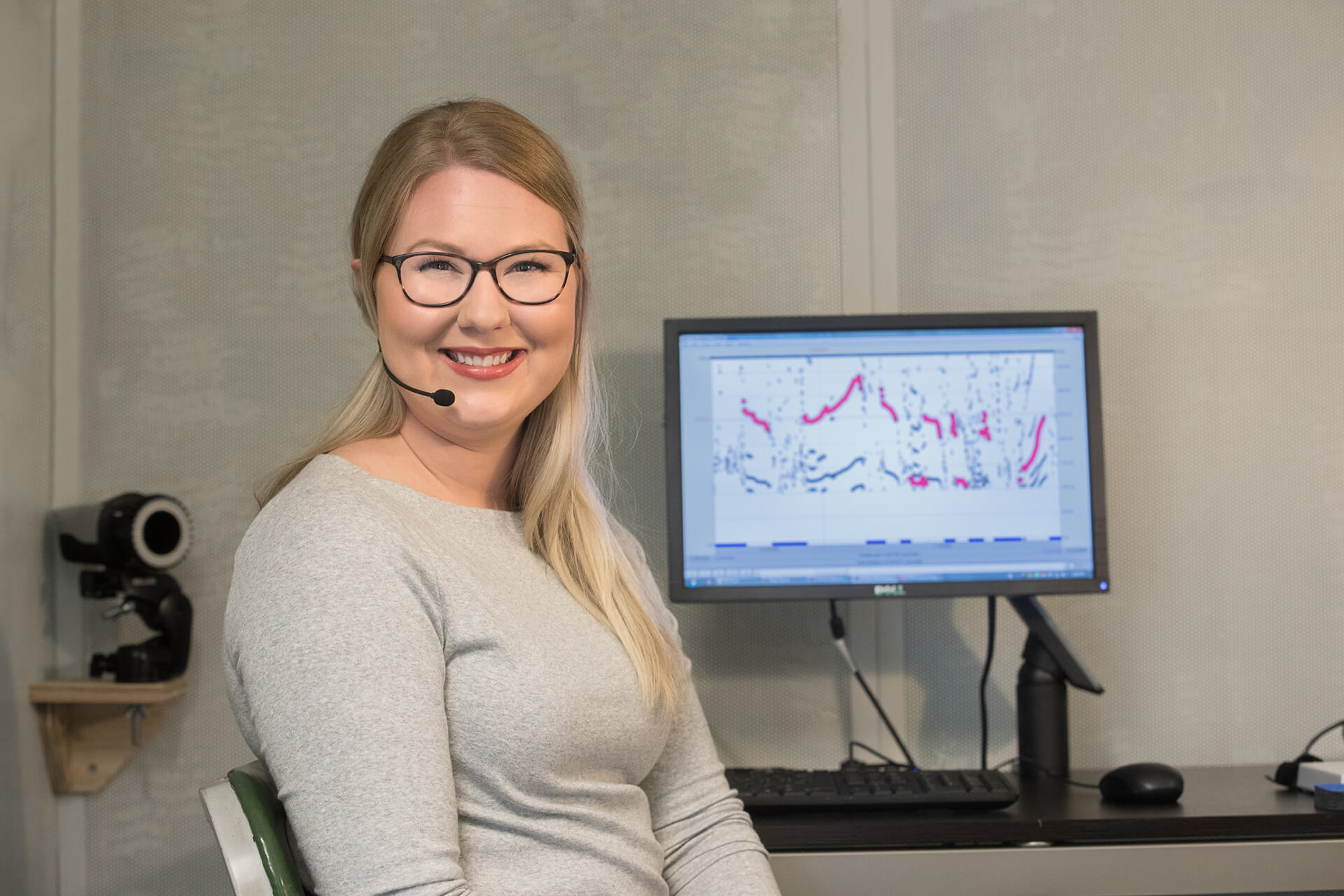

Bridging academic and research success at BGSU
By Bob Cunningham ’18
Zoe Kriegel is closing one chapter of her Bowling Green State University education and opening another.
Kriegel is in the Doctoral Bridge Program, which transitions Communication Sciences and Disorders (CDIS) master’s students into the doctoral program. The program is designed for new master’s students who wish to pursue a Ph.D. without delay. Although the bridge program does not necessarily reduce the time it takes to complete the two degrees, it allows students to begin their research training earlier than traditional doctoral programs.
She couldn’t be happier with the program that has put her in a position to continue her doctoral studies at the University.
“BGSU’s bridge program allows master’s students to pursue their Ph.D. to puzzle-piece together the two degrees so the transition is a little more seamless,” said Kriegel, a first-generation student from Celina, Ohio, who earned her undergraduate degree from Kent State University. “I was able to start taking some doctoral classes while I was finishing up my master’s in the summer rather than the spring. The work I’ve done with my thesis I can continue on and work that line of research so it isn’t disjointed.
“We’ve already been able to work on a publication for the thesis project, and I’ve made good connections here with my clinical experience in the area. I am able to follow up with those connections to keep me involved in the clinical field while I’m pursuing my research degree.”
In addition to the bridge program, Kriegel chose to attend BGSU because of the work Dr. Jason Whitfield has done with people whose voice and speech have been affected by Parkinson’s disease.
I hope to have a positive impact on students going into this field — just like I have had here at BGSU.
“He is a really innovative researcher,” she said. “He really comes up with his own approaches to measuring and inquiring about the problems that we see in individuals with Parkinson’s disease, and he’s a patient mentor. Between those two things, I felt he would make a good adviser for me. Things have worked out well and we’ve really gotten a lot done since I have been here with him in the Motor Speech Lab.
“The project I’ve been working on the most for my thesis is ‘The Effects of Parkinson’s Disease on Dual Tasking.’ We looked to see how individuals with Parkinson’s disease were able to perform two things at once. We know that people with Parkinson’s disease have trouble with that, and so we were able to bring some of the volunteers into the lab. The Parkinson’s disease community is super supportive of our work. We really are able to work together for a common goal to learn more about the disease and how we can move along the research and clinical practice with speech and cognition and swallowing and language.”
Kriegel said between 70 percent and 90 percent of people with Parkinson’s disease will experience changes in their voice or their speech. Individuals can have either a quiet voice or they can have what is perceived as mumbled speech, making it hard for them to effectively communicate with others in their lives.
“Our research aims to understand those parts of their disordered speech and voice a little more thoroughly and also to develop treatment strategies and procedures that will most effectively treat those impairments,” she said.
Kriegel hopes to work at an academic institution as a researcher as well as teach courses.
“I think I can affect more lives as a professor or researcher than I can as a clinician,” she said. “I hope to have a positive impact on students going into this field — just like I have had here at BGSU."
The University strongly supports master’s and doctoral students, Kriegel said.
“There is a ton of opportunities for professional development at BGSU,” she said. “I’ve been able to go to two different conferences and that’s really helped me to understand how I fit into my field and how I can carve not only my place in the larger field of speech language pathology but of motor speech disorders. I don’t believe I’d have the same opportunity without the monetary support and the moral support of my department as well. I really don’t think I’d get that type of support at any other university.”
Updated: 08/06/2018 02:46PM
